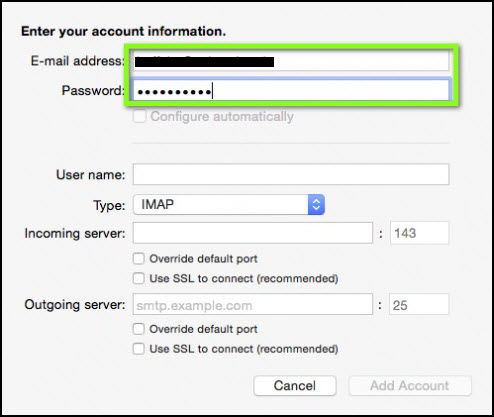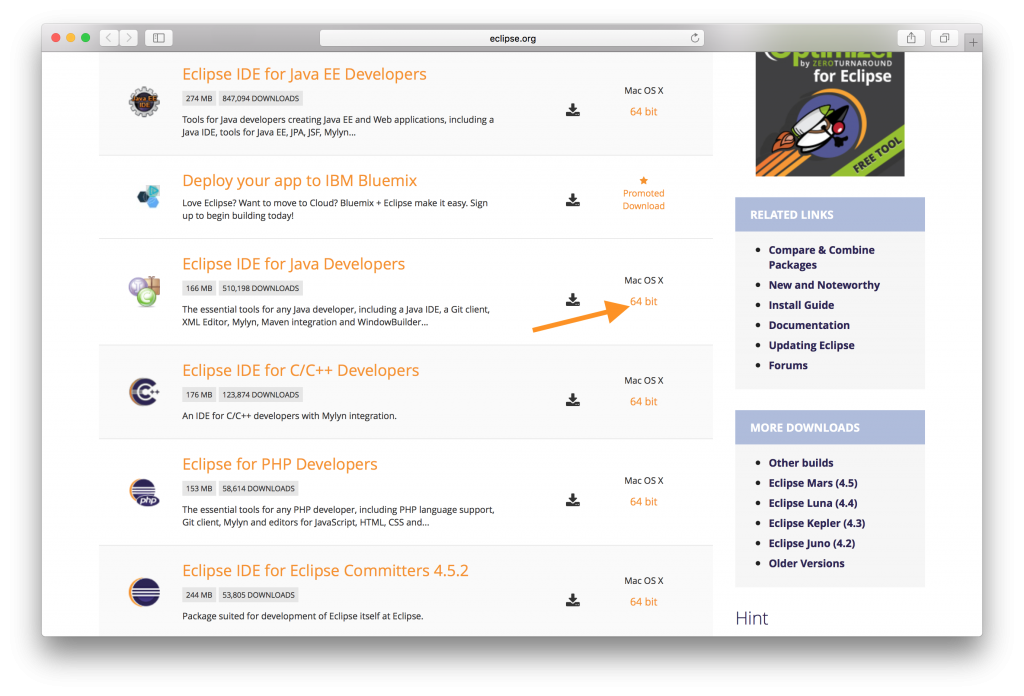Install Jdk 8 For Mac

I want to do some programming with the latest JavaFX, which requires Java 8. I'm using IntelliJ 13 CE and Mac OS X 9 Mavericks.
 An easy way to reduce the size of your Inbox is to export — manually archive to an Outlook for Mac Data File (.olm) on your Mac — your email messages, contacts, and other items. You can save an.olm file to any location on your Mac or on a different machine for safekeeping. Microsoft Outlook for Windows does not support.olm data files. However, there are several methods that you can use to transfer data from Outlook for Mac to a Windows-based Outlook client. These methods require that you use Microsoft Exchange Server. In MS Outlook 2019, 2016 & 2013 and Outlook 2016 for Mac emails, can be exported to archive files. The data is saved in PST file format in MS Outlook, and OLM file format in Outlook for Mac. And these data files can be imported to (different versions) MS Outlook.
An easy way to reduce the size of your Inbox is to export — manually archive to an Outlook for Mac Data File (.olm) on your Mac — your email messages, contacts, and other items. You can save an.olm file to any location on your Mac or on a different machine for safekeeping. Microsoft Outlook for Windows does not support.olm data files. However, there are several methods that you can use to transfer data from Outlook for Mac to a Windows-based Outlook client. These methods require that you use Microsoft Exchange Server. In MS Outlook 2019, 2016 & 2013 and Outlook 2016 for Mac emails, can be exported to archive files. The data is saved in PST file format in MS Outlook, and OLM file format in Outlook for Mac. And these data files can be imported to (different versions) MS Outlook.
I ran Oracle's Java 8 installer, and the files look like they ended up at /Library/Java/JavaVirtualMachines/jdk1.8.0_05.jdk but previous versions are at /System/Library/Java/JavaFrameworks/jdk1.6. Not sure why the latest installer puts this in /Library instead of /System/Library (nor what the difference is).
But /usr/libexec/java_home doesn't find 1.8, so all the posts I've found on how to set your current java version don't work. I've tried adding a symbolic link to make it look like 1.8 is in the /System/Library. Path, but it doesn't help. /usr/libexec/java_home -V still only lists the old java 1.6.
We use brew install to install JDK versions 8,9,10, and brew cask install for version 11 and above. All the brew commands are executed in the Terminal window on the Mac. Install OpenJDK Versions 8. $ su -c 'yum install java-1.8.0-openjdk' The java-1.8.0-openjdk package contains just the Java Runtime Environment. If you want to develop Java programs then install the java-1.8.0-openjdk-devel package. JDK 7 Debian, Ubuntu, etc. On the command line, type: $ sudo apt-get install openjdk-7-jre.
Ironically, the 'Java' control panel under System Preferences shows only java 1.8! Why doesn't Oracle's installer put it where it really goes? And how can I work around this problem? Don't rely on Oracle to install Java properly on your Mac. This will install the latest jdk: brew cask install java If you want to manage multiple versions of Java on your Mac, consider using.
UPDATE: Now that Java 8 is no longer the most current version, if you want java 8 install it this way: brew tap caskroom/versions brew cask install java8 To get a list of all older versions of java: brew tap caskroom/versions and then use brew search java. We use since we'd otherwise use the Oracle GUI installer that will likely not install Java properly on your Mac. (Use brew cask install APP to install GUI apps; use brew install APP.) Java is not a GUI app; It should not require 'cask' but at least Oracle is consistent. I'm having the same problem to solve, because I need to install JDK8 to run Android SDK Manager (because it seems that don't work well with JDK9). However, I tell you how I solve all problems on a Mac (Sierra). First, you need brew with cask and jenv.
• You can find an useful guide here. Remember to tap 'caskroom/versions' running in the terminal: brew tap caskroom/versions • After that, install jenv with: brew install jenv • Install whatever version you want with cask brew cask install java8 (or java7 or java if you want to install the latest version, jdk9) • The last step is to configure which version to run (and let jenv to manage your JAVA_HOME) jenv versions to list all versions installed on your machine and then activate the one you want with jenv global [JDK_NAME_OF_LIST] You could find other useful informations here on this Github Gist, on this blog and on. If you have several Java versions on your machine and you want to choose it dynamically at runtime, i.e, in my case, I have two versions: ls -la /Library/Java/JavaVirtualMachines drwxr-xr-x 3 root wheel 96B Nov 16 2014 jdk1.7.0_71.jdk/ drwxr-xr-x 3 root wheel 96B Mar 1 2015 jdk1.8.0_31.jdk/ You can change them by modifying the /etc/profile content. Just add (or modify) the following two lines at the end of the file: export JAVA_HOME=YOUR_JAVA_PATH/Contents/Home export PATH=$JAVA_HOME/bin:$PATH In my case, it should be like the following if I want to use: Java 7: export JAVA_HOME=/Library/Java/JavaVirtualMachines/jdk1.7.0_71.jdk/Contents/Home export PATH=$JAVA_HOME/bin:$PATH Java 8: export JAVA_HOME=/Library/Java/JavaVirtualMachines/jdk1.8.0_31.jdk/Contents/Home export PATH=$JAVA_HOME/bin:$PATH After saving the file, please run source /etc/profile and it should work. Here are results when I use the first and second option accordingly: Java 7: java -version java version '1.7.0_71' Java(TM) SE Runtime Environment (build 1.7.0_71-b14) Java 8: java -version java version '1.8.0_31' Java(TM) SE Runtime Environment (build 1.8.0_31-b13) The process is similar if your java folder is located in different locations. JavaVirtualMachines folder is now correct Why doesn't Oracle's installer put it where it really goes?

And how can I work around this problem? Not a problem.
The folder /Library/Java/JavaVirtualMachines/ is the new home for s on. To install a JVM, use an installer, discussed below. To uninstall, simply use the Finder to delete a JVM from that folder. You will be prompted for system admin password to complete the removal. Java 9 & 10 & 11 Back in 2010, the, along with,,,, and other Java vendors. Each member contributes source code, testing, and feedback to the unified OpenJDK codebase. Apple contributed most of its Mac-specific code for its JVM.